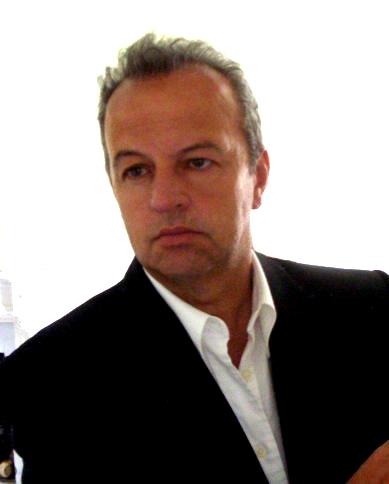Noam Chomsky, with John Halle, has argued that LEV should be used in the 2016 US Presidential election and his argument is worthy of examination: Chomsky provides some general caveats by way of providing a soft-landing for his assumption of LEV and these are deeply flawed. First, to the argument that Clinton's Foreign Policy may be worse than Trump's, he advances the claim that "following the logic through seems to require a vote for Trump"! That is an astonishing non-sequitur! It makes no such requirment and can be used simply as a means of eviscerating the claims that Clinton IS the LEV in this respect, without leading to an endorsement of Trump in the wider aspect. It may equally contribute to a decision to abstain from voting or to vote for a 3rd party.
Second, he refers to "The politics of moral witness" (the argument that LEV remains evil and should not be engaged) which he counters by stating that the point of voting for LEV is to do "Less" evil which is an "obvious rejoinder". Perhaps it may seem so, but it is a "circulus in demonstrandum" type of fallacy to make such a criticism! It only seems right to someone who is already signed up to the notion of LEV - but to others it is simply evincing a premise as a proof of that which it seeks to confirm!
Thirdly, Chomsky goes on to state "The basic moral principle at stake is simple: not only must we take responsibility for our actions, but the consequences of our actions for others are a more important consideration than feeling good about ourselves". The first proposition is good - the second half has strayed from its purpose somewhat: it appears in part to try to lessen the effect of personal responsibility by stating that consequences should be regarded as more important than intentions. That is a dangerous argument. Even at a common sense level intention is given great value in human relations - often to the detriment of consequences: and this is right, because as we have seen, consequences by their nature are often unpredictable and involve many assumptions, prejudices and involve many matters not always relevant to the decision itself. "I will bomb Iraq because it will lead to a safer world and rid us and its people of an evil regime" (I purposely introduce a contentious and familiar issue here) plays out like this: my intention is good, but I have introduced some assumptions which involve great leaps of faith and logic: ie, the consequence of bombing (bad) in producing a safe world (good) justifies my action. We can see very easily where such an argument goes awry in its practical and recent application in human history. It is not safe or justifiable to take arguments beyond their remit. Viewed by intention alone the decision may be seen as good or bad depending on one's point of view; by the consequences alone (deaths of many innocent people, destruction of a nation and its infrastructure) it is clearly an evil: does this imply that had the outcome of the war been good the war would have been a good one? It seems that the intention must play heavily on the judgement and a proper balance must be observed between intention and consequence in judging the action, especially as we could not possibly know the outcome. Of course we are setting aside the notion that Iraq was not a true LEV situation since there were actions which could be taken which were considerably less evil, but the example serves to demonstrate that intention and consequence cannot easily be separated in weighing the ethical value of an action. Therefore it seems fair to alter Chomsky's proposition to "We must take responsibility for our actions which should have intrinsic good as their basis and CONSIDER the consequences as a corollary to this". That is as far as an ethical argument can take us.
A final criticism of LEV, says Chomsky, is equating it with "passive acquiescence to the bipartisan status quo" and he attacks this by stating that LEV can be defended by the fact that "poorly considered electoral decisions impose a cost" and then goes on to give some subjective examples of Nixon's continuation of the Vietnam war. But this is unjustifiable by the same measures we have considered in applying assumptions and prejudices to previous arguments, for it can quite as easily be argued that an alternative to Nixon MIGHT have produced a different adminsitration; indeed, that it MIGHT have produced an alternative ending to the Vietnam war - but it might not: recent US history is not over-filled with instances in which different electoral results produced different policies! In the case of Vietnam it can be argued that the war was a war of the US Establishment - and surely no-one prosecuted that war with greater vigour and determination than democrat President LBJ? The difficulty with such examples is that we move into the realms of pure speculation in guessing what the alternative might have been. We could equally claim that the 1968 outcome may have averted nuclear war due to the initiation of the SALT negotiations by Nixon - but we should not do so, because to bring such unknowns which are dependent on so many different variables into the equation, takes us into the arena of pure political speculation and little else.
Critique of Chomsky's 8-point argument:
Next Page 1 | 2 | 3 | 4 | 5 | 6 | 7
(Note: You can view every article as one long page if you sign up as an Advocate Member, or higher).





